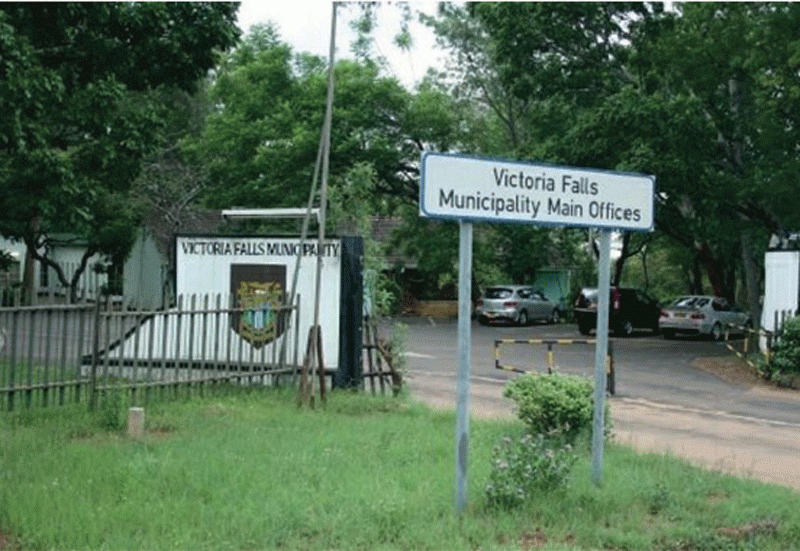
Zimbabwe's media sector is at the crossroads. On one hand, there is so much growth potential to satisfy the information needs of audiences - a ready market some of which untapped.
Juxtaposing such growth opportunities with the reality that is confronting the sector, where the national media question is moving from being about sustainability to survival is something that requires interrogation.
Notwithstanding the structural and contextual challenges - be there legal, political or economic, minimal conversations have been steered on some pitfalls that are not necessarily external and within the control of media organisations.
The argument here is not to belittle the environmental challenges, which as a country we need to continue discoursing and raising the stakes in sustaining momentum for reforms.
Rather, this discussion seeks to redefine the focus and thinking of media stakeholders on what really needs to happen for the sector to move beyond survival to viable businesses.
In this past week I had an opportunity to have a helicopter view of some of the key actors in the media sector, thanks to a courtesy and learning visit by a delegation from JamiiAfrica, a regional digital media organisation headquartered in Tanzania.
The learning mission, which was led by the executive director Maxence Melo, director of programmes Ziada Mariam Seukindo and a researcher, Shepherd Mpofu who is also a professor of media studies at the University of South Africa (Unisa) sought to understand the Zimbabwean media landscape with a view to establish future synergies.
As the coordinator of a network of journalistic professional associations and media support organisations, my role in this mission was to facilitate engagement meetings of this delegation with Zimbabwean media stakeholders.
- Lupane man survives axe attack
- I don’t have depth: Bosso coach
- Gokomere school head succumbs to pressure
- In the groove: Has inflation hit the music markets?
Keep Reading
Naturally I got to draw some lessons from the mission.
Getting this outside view was critical - not that it revealed any much new information on my part, as part of my vocation is to constantly engage and understand the needs of the sector, but it renewed my perspectives on what could be the solutions to some of the crosscutting media challenges.
What is evident across all media in their diversity is how to navigate the complexities of the online space and how to commercialise the ventures there in.
To be fair, the media is not starting on ground zero. Interesting digital strategies are being deployed depending on the size, focus and stature of media organisations.
Investments have been channelled in varying proportions towards the diversification of revenue and transitioning to the digital market.
Yet, in these engagements — in my view — three issues need to be further explored and unpacked in the context of supporting the media to be sustainable.
For starters, there seems to be a lack of clarity in what the media is actually selling on online platforms.
While the question of what the media sales to advertisers and audiences may seem obvious — the numbers, news and information — the digital age has by and large shifted consumption patterns and audience behaviours.
Citizens are content producers on the same pedestal as journalists, commercial content producers and podcasters, whichever case maybe and to that end their choices of what to consume is often led by what they produce.
It is a socio-physcological behavioural trait that human beings often relate to what is familiar to them. They want to see and hear themselves.
To that extent news and information that appeals to their inherent consciousness and emotions often takes precedence. And such news and information may not necessarily be what would traditionally identify as news values.
So, yes journalistic media and commercial enterprise of content production may package information to draw this audience in the hope of a return but if this citizen is not being located appropriately, profits will remain a wild goose chase.
Secondly, I didn't get a sense of alternative plans in the framing of the digital strategies.
Yes, there were arguments around how media organisations, particularly legacy media organisations are diversifying business interests to support journalism but none of the alternative strategies revolve around strengthening journalism or content creation.
It is well and good for other business interests to support journalism. But it is equally not sustainable for the media to be heavily dependent on investment that doesn't cross pollinate with the objectives set out for it.
Lastly, I got the sense that very little collaboration are taking place among Zimbabwe media stakeholders and regional actors in the space.
Regional networking and collaborations seem more vibrant among professional associations and within civics than it is happening among media actors themselves.
There's an opportunity for actors to cross share platforms, develop artificial intelligence tools for audience engagement and skills exchange among other interventions.
It is within this context that the visit by JamiiAfrica could be timely in opening avenues for networking and engagement for the media in Zimbabwe and the region towards sustainability.
Ultimately policy dialogues on the need for the media sector to reimagine revenue sources and models should transition from being about the media just existing. But about it being sustainable.
Not for the media to merely enjoy the benefits of being profitable. But for citizens to be empowered to make decisions and to connect regionally and beyond.
- *Nigel Nyamutumbu is a media development practitioner serving as the coordinator of a network of journalistic professional associations and media support organisations, the Media Alliance of Zimbabwe (MAZ). He can be contacted on [email protected] or +263 772 501 557









